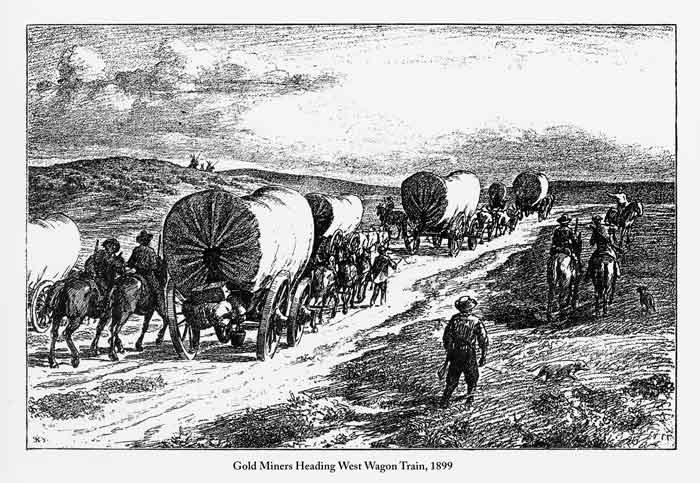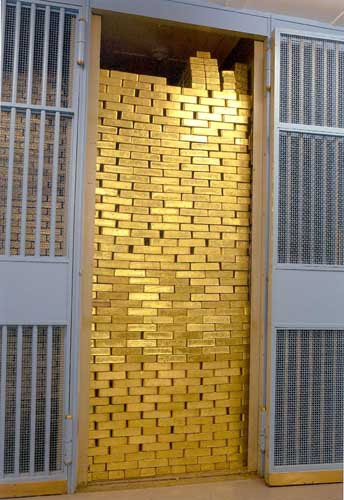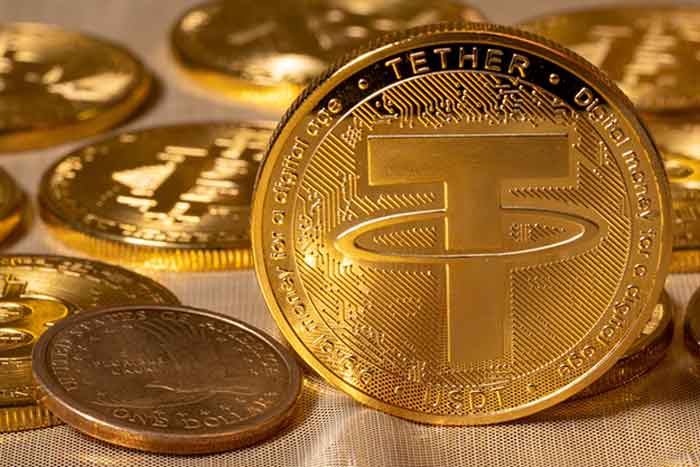Insights
Tokenized gold
Share this article
July 16, 2024 | By Mesirow Currency Management
Panning for digital gold
Tokenized gold works by digitizing ownership of actual physical gold, making it accessible, secure, and tradeable on a distributed ledger. Will investors rush to this 21st century treasure?
Gold miners heading west - 1899

Source: Getty Images
There’s gold in them thar phones!
National mints, financial technology companies, and custodial banks such as HSBC have a golden quest: tokenizing gold. These financial institutions want to turn the precious metal into a digital version that can be easily bought or sold on mobile phones.
It’s not an easy task: some financial firms have announced plans for tokenizing gold only to give up a few years later. Undeterred, HSBC, a large player in the gold bullion market but a small participant in the digital gold industry, announced in late 2023 that institutional investors will be able to trade tokenized gold on an HSBC platform in 2024. As for retail clients, in March 2024, HSBC reported that Hong Kong clients will be able to buy and sell digital gold online or on mobile devices.
Tiny market poised for extraordinary growth?
The tokenized gold market is small, standing at about 1.2 billion dollars. Three cryptocurrencies, PAX Gold, Tether Gold, and Kinesis Gold dominate; together, they account for over 96% of digitized gold holdings. As a portion of managed assets, tokenized gold is a tiny fraction of a percent. But HSBC and Northern Trust project that by 2030 five to ten percent of all assets will be digital; that translates to a $4 trillion to $20 trillion market, depending on the estimate. HSBC is determined to oversee a significant share of the digital gold assets that will be part of that managed wealth.
Achieving a multi-trillion-dollar market by the new decade means overcoming considerable challenges. Still, the projections indicate enormous potential. In Hong Kong, HSBC aims to capitalize on client preferences and sophistication. “We acknowledge the rising demand for digital assets and the existing familiarity of our customers with gold investment,” said Maggie Ng, Head of Wealth and Personal Banking at HSBC Hong Kong.
How does it work?
Digitizing gold begins when a custodial bank stores gold destined for tokenization in a vault. Securely storing the gold assures token owners that the digital version is backed by physical gold.
STEP 1: SECURE PHYSICAL GOLD

Gold vault, Federal Reserve Bank of New York, Source: Wikimedia Commons
STEP 2: CREATE DIGITAL VERSION
The custodian, or a partner, creates tokens representing the stored gold on a distributed ledger, a sophisticated electronic database of transactions that is unchangeable, verified, and transparent.

Source: Shutterstock
STEP 3: TRADE OR HOLD
Once tokenized, owners can save or trade the gold tokens on a digital platform.

Source: Getty Images
Origin and accessibility
Besides recording transactions, distributed ledgers can store information useful to token holders and potential buyers. The origin of the gold – whether mined, recycled, or commingled gold – and its purity can be stored on the ledger. Other stored information, such as the provenance, or ownership history, might be valuable to some holders and potential buyers and increase the token’s worth.
Accessibility can also contribute to a gold token’s value. Gold tokenization involves carving a large asset, such as a gold bar whose price puts it out of reach of most would-be buyers, into many small, affordable tokens. More buyers can result in greater demand that boosts the price.
Transforming gold into a digital version can make buying and selling easier compared with tangible gold. Traditional markets have business hours on business days, but tokenized gold can be traded any time. The platform handling the transaction would record it on a distributed ledger, protect it cryptographically, and make the transaction transparent to the buyer, seller, and other interested parties.
It ain’t easy
HSBC is trying where others have failed. In 2019, technology firm InfiniGold introduced a digital token backed by gold holdings of The Perth Mint in Australia. The tech partner pulled out in 2023 when the mint was accused of breaching Australian and US laws. Sales were poor: less than 1,200 ounces were tokenized, valued at about $3.5 million Australian dollars.
In 2018, the Royal Mint in Britain shelved plans for tokenized gold after the Chicago Mercantile Exchange withdrew from the venture when its priorities changed. The UK government was unwilling to team up with another firm that would use a cryptocurrency exchange.
But other gold tokenization initiatives, demonstrating global interest and potential for growth, are underway in Russia, Turkey, Canada and Zimbabwe. Sberbank, Russia’s largest bank, issued gold tokens in late December 2022. Turkish Takasbank announced a digital gold project in late 2019 but little news since. In March 2024, the Royal Canadian Mint implemented a distributed ledger for tracing transactions and the source of gold used in the Mint’s refinery. The new Zimbabwe Gold token, or ZiG, is an effort to control inflation and raise confidence in the country’s financial management. Citizens look doubtfully at the likelihood of ZiG’s success.
To prosper, digital gold hinges on attracting investors. Early adopters will quickly accept a new asset form and way to trade, but most gold buyers are likely to take a wait-and-see approach. Digital gold’s ability to navigate regulations, ensure security and offer compelling value will determine whether tokenization is a short-term gold rush or an enduring mother lode of golden wealth.
Explore more currency insights
Cryptocurrencies and Tokenization
Distributed ledger technology fosters digitization of just about everything.
Can a US rapid payment system take off?
Hedge Share Class Investors Grapple with Shorter (T+1) Security Settlement Cycle.
Spark
Our quarterly email featuring insights on markets, sectors and investing in what matters
